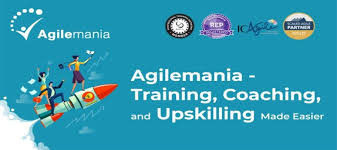
Agilemania
Agilemania, a small group of passionate Lean-Agile-DevOps consultants and trainers, is the most tru... Read more

Agilemania
Agilemania, a small group of passionate Lean-Agile-DevOps consultants and trainers, is the most tru... Read more

Acing a software testing interview requires a strong understanding of core concepts and the ability to showcase your problem-solving skills. This blog compiles the top 20 software testing interview questions for 2026, categorized for beginners and experienced testers, along with insightful answers to help you shine:
Software testing is the process of evaluating a software application to identify bugs, defects, and ensure it functions according to requirements.
The SDLC is a framework defining the stages of software development, with testing integrated throughout. Common phases include planning, requirement gathering, design, development, testing, deployment, and maintenance.
There are two main categories: functional testing (ensuring features work as intended) and non-functional testing (evaluating performance, usability, security, etc.). Within these, there are numerous types like black-box testing, white-box testing, regression testing, etc.
A bug is a programming error in the code. A defect is the observable issue or deviation from expected behavior caused by the bug.
Test cases are specific steps to execute a particular functionality. Test scenarios describe broader situations or user workflows that encompass multiple test cases.
Agile development is iterative and incremental. Testing is continuous throughout the development cycle, with testers collaborating closely with developers.
Shift-left testing emphasizes integrating testing activities earlier in the SDLC, like during design or coding phases, to identify and fix bugs sooner.
Popular frameworks include Selenium for web applications, Appium for mobile apps, and frameworks like Robot Framework for generic automation.
Maintain a professional and collaborative approach. Provide clear documentation of the issue, expected behavior, and potential impact. Be open to discussing the issue and working towards a resolution.
Clear and concise: Steps should be easy to understand and follow.
Measurable: Define expected outcomes to verify pass/fail.
Repeatable: Test cases should produce consistent results.
Traceable: Link test cases to specific requirements.
Explore our Test-Driven Development (TDD) Certification to demonstrate your proficiency and stand out in the competitive job market.
Limited Seats!
API testing focuses on validating the functionality, reliability, performance, and security of APIs (Application Programming Interfaces).
Exploratory testing is a creative, session-based approach where testers actively explore the software to identify unexpected issues.
Popular bug tracking tools include Jira, Bugzilla, Trello, etc.
Industry publications and websites
Online courses and certifications
Attending conferences and workshops
During a recent project, we encountered an intermittent bug in a mobile app's login process. It wouldn't occur consistently, making traditional testing methods difficult. To tackle this, I collaborated with the development team to implement logging mechanisms to capture detailed information during login attempts. By analyzing the logs, we were able to identify the root cause - a race condition between two asynchronous operations. This helped us pinpoint the issue and develop a fix."
This answer highlights:
Specific situation: Briefly mention the project and type of bug.
Challenge: Describe the intermittent nature making testing difficult.
Problem-solving approach: Mention collaboration and using logging mechanisms.
Resolution: Briefly touch upon identifying the root cause and working towards a fix.
Remember to tailor this answer to your own experience, replacing the details with a specific scenario you've faced.
Smoke Testing: High-level, quick tests to ensure basic functionality works before proceeding with further testing.
Sanity Testing: Focuses on critical features after a new build or major changes to confirm core functionalities are stable.
Test coverage: Percentage of requirements covered by test cases.
Defect detection rate: Number of defects identified compared to total defects present.
Retest rate: Number of times a bug is re-tested due to reappearance.
Security awareness is crucial. You can answer by mentioning the importance of secure coding practices, understanding common vulnerabilities, and the potential use of security testing tools (if applicable to your experience).
Performance testing assesses how a software application behaves under load. It evaluates aspects like speed, scalability, and stability under various conditions.
The trend is towards increased automation, AI-powered testing tools, and a growing focus on non-functional testing areas like security and performance.
This list provides a solid foundation for your software testing interview prep. Remember, staying updated with the evolving software landscape and showcasing your passion for quality assurance will make you a strong candidate.
Bonus Tip: Be prepared to ask insightful questions about the company's testing practices, culture, and the specific role to demonstrate your genuine interest in the opportunity.
By combining a strong theoretical understanding with the ability to apply your knowledge in real-world scenarios, you'll be well on your way to landing your dream software testing job!
Software testing ensures that the product is reliable, functional, and free of defects, reducing risks and enhancing user satisfaction. It helps catch issues early, saving time and costs while maintaining quality standards.
Review fundamental testing concepts, tools, and methodologies. Practice problem-solving with real-world scenarios and familiarize yourself with common interview questions and best practices.
Understand the basics of various testing methodologies such as Agile, Waterfall, and DevOps. Also, be familiar with different types of testing like unit, integration, system, and acceptance testing.
Avoid vague answers and ensure you provide specific examples from your experience. Don’t neglect the importance of soft skills like communication and problem-solving in addition to technical knowledge.
Share detailed examples of past projects where you applied testing techniques. Discuss challenges you faced, how you addressed them, and the impact of your testing on the final product.
Agilemania, a small group of passionate Lean-Agile-DevOps consultants and trainers, is the most trusted brand for digital transformations in South and South-East Asia.
WhatsApp Us
We will get back to you soon!
For a detailed enquiry, please write to us at connect@agilemania.com

